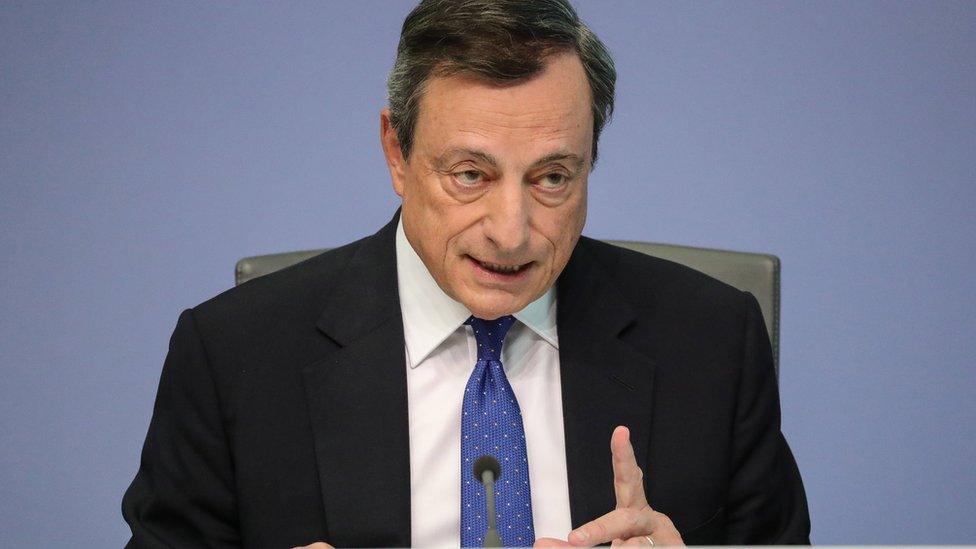Greeks walk out in general strike over cuts
- Published
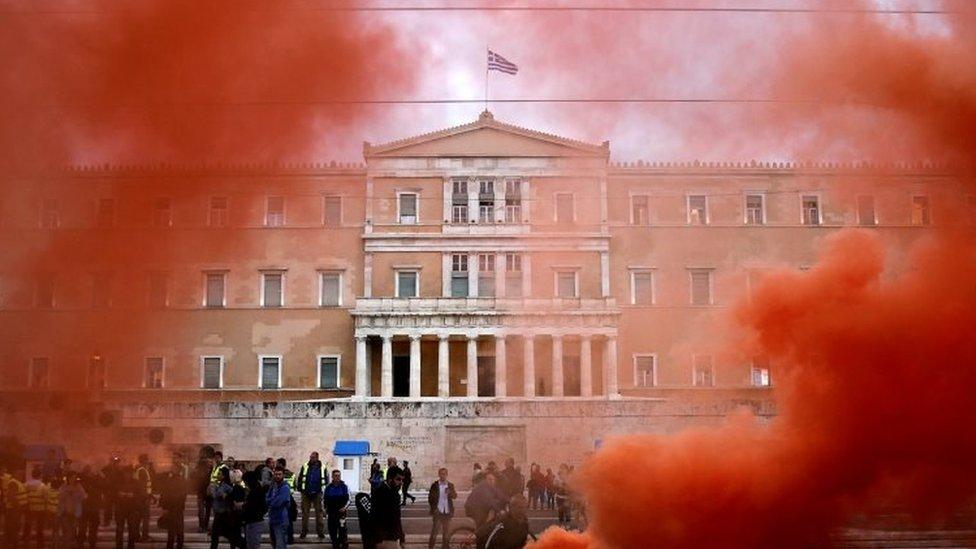
The protests on Wednesday took place in several parts of Athens, including the front of the parliament building
Hospitals, transport services and government offices across Greece have been severely affected by a general strike over new austerity measures.
Industrial action began on Tuesday but was ramped up nationally by members of the big trade unions.
Thousands of people stopped work on Wednesday and marched through Athens to demonstrate over the measures being demanded by international lenders.
There were isolated clashes, but the most of the protest were peaceful.
Elsewhere in the country ferry services stopped and buses and trains were limited. Flights were also hit for several hours by the strike.
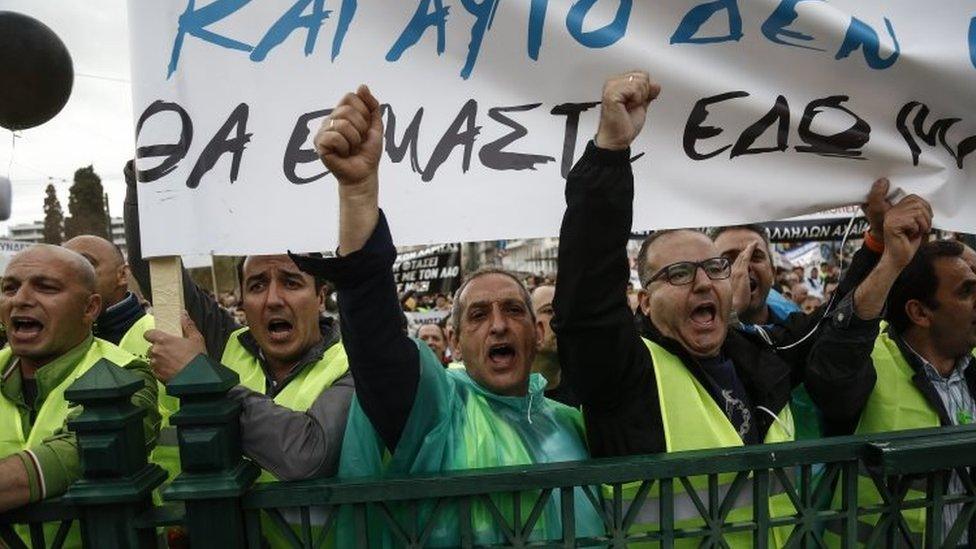
Greek police officers were among those venting their fury against the government
MPs are set to vote on controversial reforms on Thursday that will cut pensions and end tax breaks.
The left-wing Syriza government needs to make further savings before eurozone finance ministers agree to hand over further loan cash as part of its latest bailout deal.
Despite pouring rain, crowds of protesters joined a rally late in the morning in Klafthmonos Square in the centre of Athens. Further rallies were held elsewhere in the capital, including one organised by the communist-affiliated PAME union.
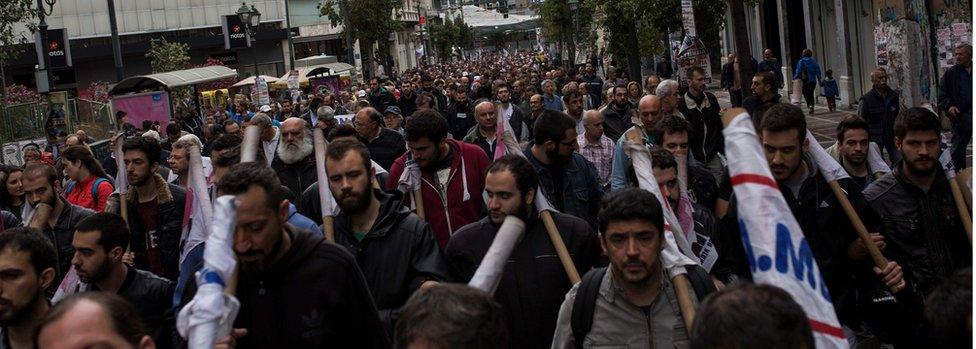
Greece has fallen back into recession for the first time since 2012
A large number of professions were involved in the strike, including the biggest trade unions, the GSEE and ADEDY:
Air traffic controllers stopped work for four hours
No newspapers were published and news websites and TV channels were also badly hit
Doctors and other hospital workers walked out - and hospitals limited services to emergencies only
Trains, buses and trams were providing only limited services for some hours of the day
Civil servants, court officials and teachers were all involved
Police and other security forces joined the protest late on Wednesday afternoon

No flights were due to arrive or take off at Athens Airport for several hours
The new austerity measures will not come into force until 2019 and 2020 but Prime Minister Alexis Tsipras has to persuade eurozone finance ministers next Monday to provide the next loan instalment of €7.5bn (£6.4bn; $8.2bn).
Mr Tsipras - who came to power pledging to resist austerity measures - said on Wednesday that he was hopeful the finance ministers would respond favourably to Greece's predicament.
Athens needs to repay 7.5 billion euros ($8.2 billion) of debt maturing in July. Mr Tsipras and German Chancellor Angela Merkel agreed during a call on Wednesday morning that a deal was "feasible" by Monday, a government official said.
Greece is facing its next big debt demand in July and has had three bailouts from the EU and IMF so far.
The country has fallen back into recession for the first time since 2012, according to figures that emerged on Tuesday.
Unemployment is running at nearly one in every four people with almost a 50% jobless rate among young people.
- Published16 May 2017
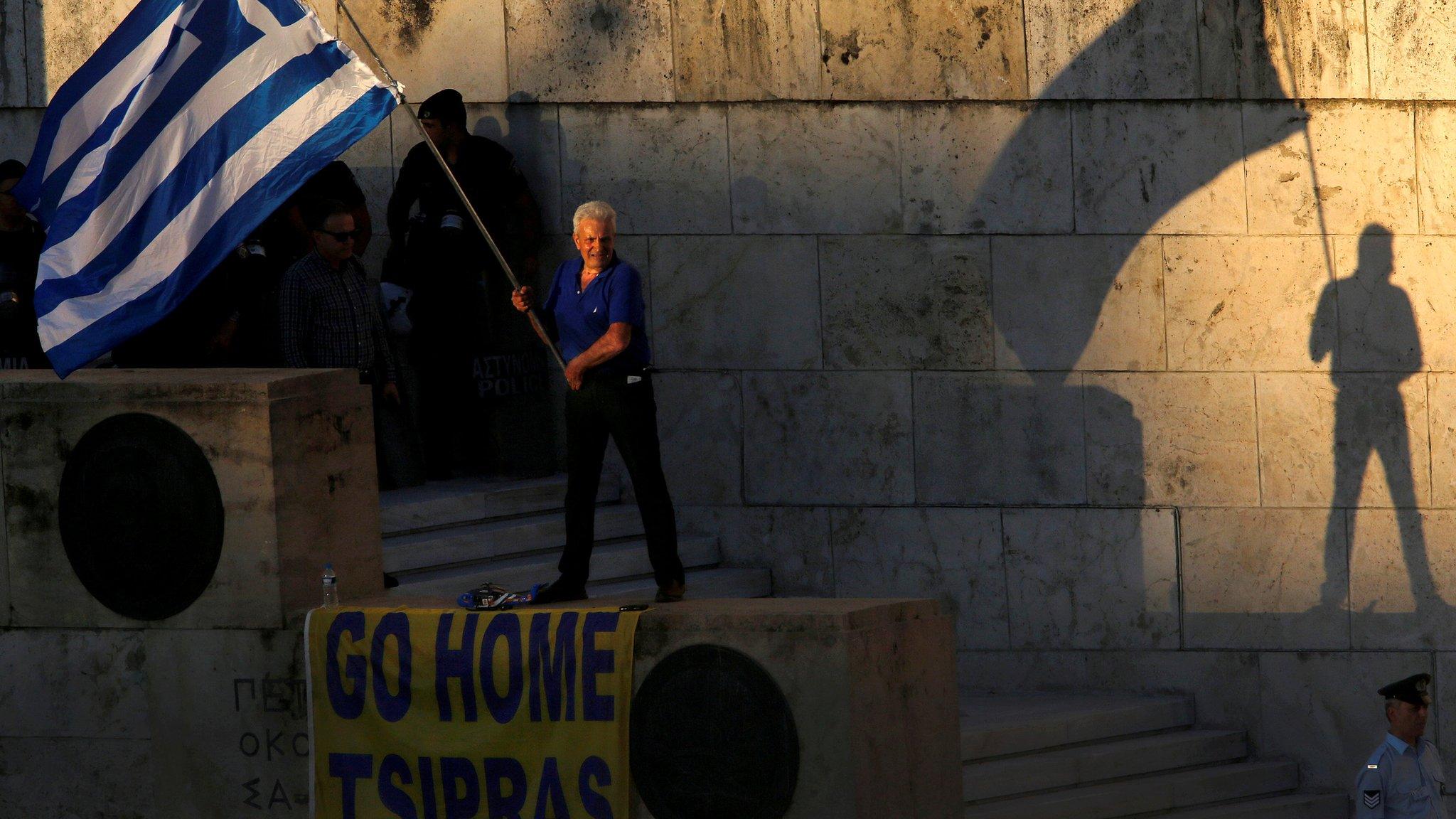
- Published27 April 2017
